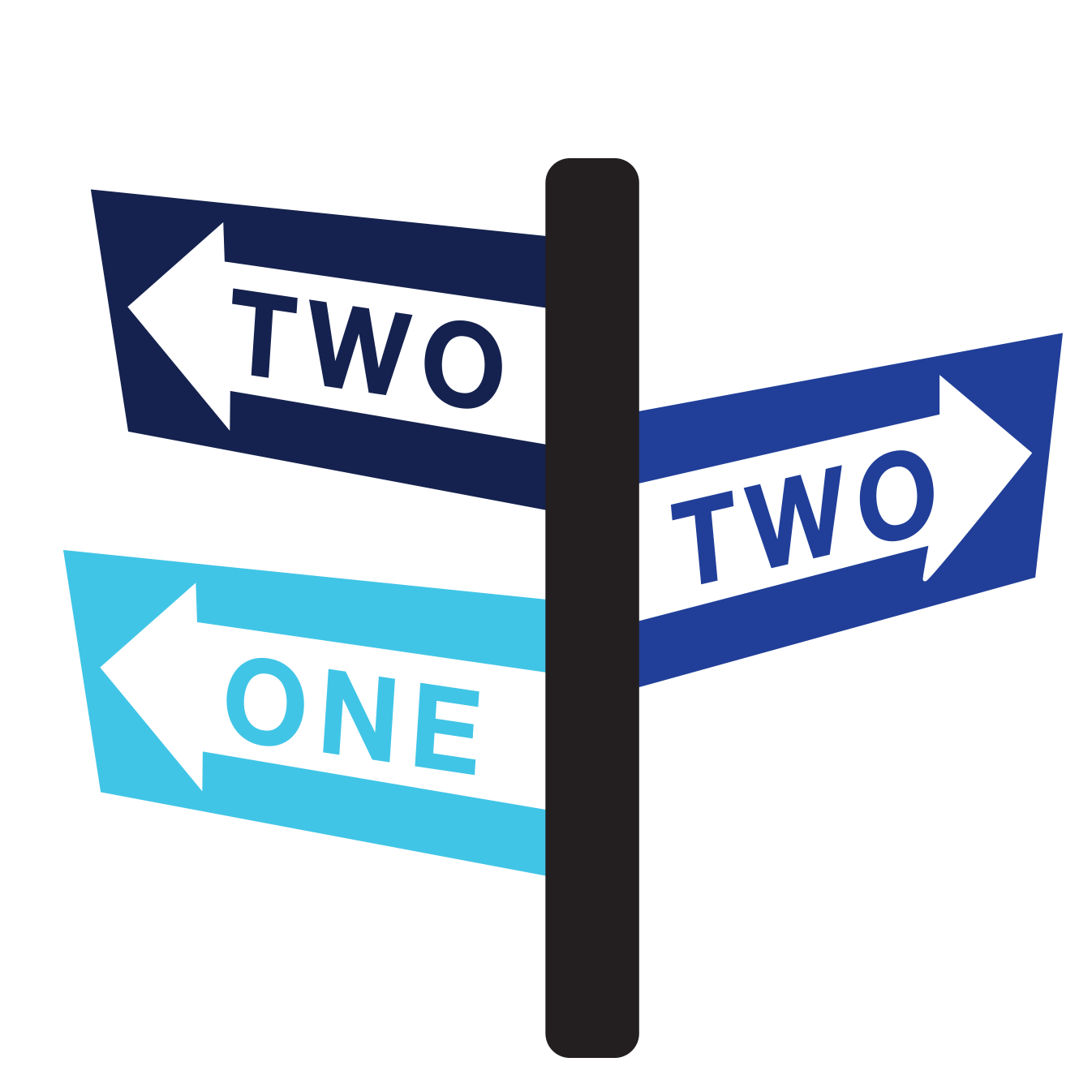The Sopranos, Reemerging
Gwendolyn Attridge re-discovers a highly acclaimed early 2000s mob drama, The Sopranos, and finds that despite throwbacks the show resonates with a Gen Z audience.

The members of Generation Z, anyone from the age of 8 to 24, are completely accustomed to being bombarded with content. They consume media from multiple platforms in a day, and are constantly the target market for many shows and movies we see being produced. It’s all about what’s new; the next best thing,the trends that emerge out of nowhere, the issues being discussed, being progressive. Television has taken these cues, with TV series created in the last 3 years like Euphoria, Sex Education, and Atypical that push boundaries with subject matter and appeal to the generation that has become more educated than ever.
With streaming apps becoming the preferred channel of consumption for movies and TV, everything is at Gen Z’s fingertips. So along with these new progressive shows comes a whole library of programs from TV’s past, a time when you had to have your ass parked on the couch at a certain time to get updates on your preferred characters. With such a wide range of genres and eras, with new stuff being produced and released at a mile a minute, what makes a member of this extremely stimulated generation want to go back in time and watch a show made when they could barely comprehend words? A show with characters whose beliefs are so contrary to the beliefs they hold now? A show that was based on a subject so taboo at the time, but so normally talked about now? Whether it be because of critique or praise, HBO hit Mafiosa drama The Sopranos has seemed to recently draw the attention of this younger generation, who could have been anywhere from 3 years old to not even conceived yet when it was released in 1999.
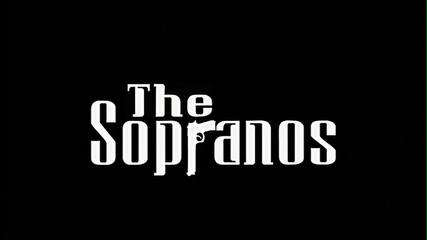
The crime show, centered around the family and personal struggles of Italian Mob boss Tony Soprano, has won 21 Emmy awards and has been considered “the richest achievement in the history of television,” according to New Yorker editor David Remnick in a 2007 review of the series. It was said to have summoned “the golden age of television” by pushing the boundaries of storytelling and subject matter in television. The Sopranos sat a beefy, feared, masculine New Jersey crime boss across from a therapist, admitting he was depressed and wanted to get help to be a better father and husband. In 1999, this was pushing boundaries. The show was “largely recognized as the first television show to delve into the world of therapy” (Naftulin).Now, it is seen as anything but taboo to a Gen Z audience, as dramas like Euphoria and This Is Us address mental health on the regular.
This is what makes viewing a show made for Boomers and Millennials as a member of Gen Z a fascinating experience. There has been an abundance of change, especially in our young people. They have become more open-minded, more educated, and more progressive in the way they see the world. That means views of race, class, gender, religion, identity politics, and mentalhealth have drastically changed as well. These issues come up constantly in The Sopranos, as they form subplots within each episode and give depth to the storytelling of the Italian-American experience.
From a progressive 2020 perspective, some of the comments from the characters may make you want to rewind to make sure you heard them correctly. Racism and sexism are heavily prevalent in many of the characters' views. Throughout the series, Anthony Soprano shows outright prejudice towards many minorities, including African Americans, Native Americans, Jews, Muslims, and any other group that seemed to threaten the values held by The Italian Mob. The language used is jarring, and the casual demeanor in which they’re thrown around makes anyone who identifies with more liberal ideas cower in disgust. In the second episode of season 3, Tony’s daughter Meadow brings home an African American boy from college. He approves ofthe young man until he learns this fact, proceeds to call him a “ditsoon,” a “charcoal briquette,” and a “melanzane’ (eggplant in Italian) to his face, and intimidates him to leave his daughter alone. Tony and his crew also deliberately blame their crimes on black people that were never present. In the third episode of season 4, Tony’s Mafia crew is outraged by the protesting of the Annual Columbus Day by the Indigenous tribes of the area. In the show’s final episodes, taking place in 2007, the FBI agents that used to keep tabs on Tony, now working in the terror unit, told them that they would vouch for him if he gave them information on any suspicious Arab-American activity.
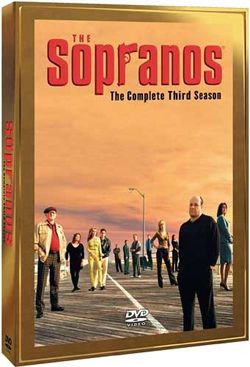
*TW: domestic violence and sexual assault*
With these racist ideations also comes the questionable treatment and depiction of womenin the show. The DiMeo crime family worked out of a strip club, and depicted sex workers catering to the mob men. It shows most of the crew being unfaithful to their wives, having “goomahs,” or girlfriends, on the side, and putting all the women through hell, both emotionally and physically. A season 3 episode even went as far as to show the brutal murder of an innocent stripper by a man in Tony’s crew after she tried to stand up for herself. Besides physical violence, we see Tony’s wife Carmela being constantly emotionally and mentally affected by her husband’s antics. The emotional trauma of his own career has leaked into her life, and despite his respect and protection of his wife physically, he sends her on an emotional roller coaster and forces her into the age-old gender role of women taking care of the children, cooking, cleaning, and catering to their husband despite his actions. A rape scene of Tony Soprano’s therapist in a parking lot by a stranger is also included in an episode.
Reading these examples back can make any member of Gen Z, who is said to be the most liberal demographic yet, shutter. With movements like #MeToo, which shed light on sexual assault and abuse starting in 2017, and #BlackLivesMatter, which started earlier this year in response to police brutality against black people, the generation is well-educated when it comes to racial and gender issues. Watching scenes like ones described above can be off-putting, as it is outrageous to think depictions of these ideologies could be released on national television. However, with some research, you start to realize that the subject of these scenes weren’t to be taken literally, but instead as commentary. And commentary, on such important issues, in the early 2000s, in a television show, was a sight unseen until that point.
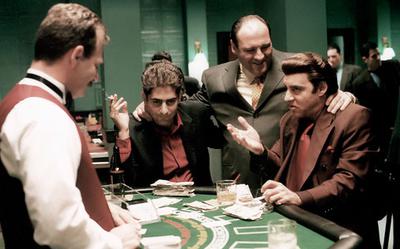
These comments made by Tony and other characters are deliberate, as many analyses and critiques of the show have said The Sopranos represents real attitudes of the time period, the Italian-American culture identity, and white Americans in general. As said in a critical analysis by Christopher Kocela of Georgia State University, “The Sopranos encourages analysis of whiteness while offering no simple resolution to the contradictions it entails.” In an era where many questionable opinions were held by white Americans regarding other races and different cultures, The Sopranos writers were bold enough to show America a playback of how it was treating other people, and paved a way to question it. We see this is the characterization of questioning conservative ideals in Meadow Soprano, Tony’s daughter. In many conversations, she is the one to constantly call the questionable politics of her family into question, and giving insight into ideas such as civil liberties and the treatment of minorities. She even goes as far as to say her Mob-boss father has a“racist retrograde fucking asshole personality.” As a member of Gen Z watching The Sopranos, one can identify with Meadow as they sit and want to critique the eurocentric ideals of the older characters.
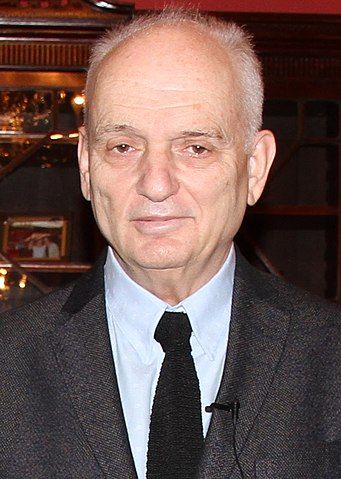
And yes, the actors and writers were very aware of these concepts and the idea of portraying them as commentary. They knew the implications of presenting scenes like these, outrightly and unapologetically, on camera and to a large national audience. They even sometimes received pushback from actors because it went against their own beliefs. In an interview with Esquire Magazine in 2019, The Sopranos director David Chase claimed that his leading man, James Gandolfini, Tony Soprano himself, pushed back on story ideas all the time, especially when it came to brutality against women. He did this “because it was so dissonant with his own values,” says Chase. “I could say, ‘Well, Jim was a big guy, an angry guy, and he was concerned about that. He didn’t want to be taken for a bully or a thug, even before the show.’ It was for the obvious reasons: he didn’t like what the characters were doing and he didn’twant to portray that.” The interview goes on as Matt Zoller Seitzcontinues to question David Chase about the level the cast and crew were willing to go to to depict these horrid themes in society. In the end, Chase says, “It’s about people who’ve made a deal with the devil, starting with the head guy. It’s about evil. I was surprised by how hard it was to get people to see that.” The actors and creators were committed to the commentary, to showing just how bad society is and can be when taken to the extreme. It demonstrates how progressive the show actually was, for its time period, and even right now, making sense as to why it sits well with a Gen Z audience.
While this blatant commentary on important subjects like racism and sexism sets The Sopranos apart, it was the central plotline of an open discussion about mental health that really made it so ahead of its time. Seriously, it is the only thing that makes it more than just a bloody, murderous crime show. And the directors wanted to make it clear from the start that mental health and therapy were going to be a driving force of the story throughout all 6 seasons. In the first episode, an uncomfortable Tony Soprano sits awkwardly across from therapist Dr. Jennifer Melfi in a brown, circular office. After a long pause, while Tony picks at his shoe, Dr. Melfi begins to question him about a recent collapse, saying his family doctor suspected it was a panic attack. Tony, immediately defensive, claims he didn’t have a panic attack, as we can obviously see the large Mob boss not wanting to look weak. After stating his line of work (“waste management consulting”), he claims that it is “impossible” for him to talk to a psychiatrist. And that is when we are introduced to the push and pull of the relationship between Dr. Melfi and Anthony Soprano.
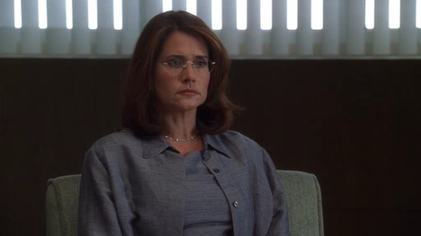
Anthony, an alpha male very stagnant in his ways and coping mechanisms, is challenged by his own psyche, his own trauma, that Dr. Melfi helps him face throughout the series to help him be a better father and person overall. This even results in outbursts of anger from Tony, of claims of attractions, and every other heightened emotion in between, as a calm Melfi navigates the best way to help her unique patient. According to Dr. Philip Ringstrom, an analyst at the Institute of Contemporary Psychoanalysis in Los Angeles: “It's the best representation of the work we do that has ever been in film or on television,'' he said in a 2001 New York Times article.
It was groundbreaking work for the time, seeing a man seek help for his problems. The stigma around mental health has lasted for years, and just recently started to crumble due to the acceptance of mental illness by the upcoming generation. Which makes sense as to why there are more articles written in 2020 about the mental health perspective of the show than there were during the actual running of the show from 1999 to 2007. But from the slim pickins were some great insight into how it was received during the time. In an LA Times review in 1999 after the pilot episode, Howard Rosenberg describes it as “A serious series about a Mafia capo who is nearly as likable as he is menacing? Talk about your creative risks. HBO is famous for zooming ahead of the field by taking hairpin curves at full speed, and “The Sopranos” is another gleaminghood ornament on that chassis.”
In a New Yorker review after the series finale, David Remnick writes, “Chase is merciless with his exposure of the ordinary disappointments and tragedies. He has immersed us for years in an examination of addiction, twelve-step recoveries, teen-age depression, modern pharmacology, suicides...and always, afterward, the inability to summon a language to equal the emotion.” With these two pieces from reviews, you can see just how windswept the audience was at the time. Director David Chase had an aim from the start to depict the real human condition, Matthew Weiner, The Sopranos writer and producer, saying that his perception of writing “was very different after seeing how seriously David Chase took human behavior. Real human behavior.” And his commitment to that seeps out of every edge of The Sopranos.
In an article written in 2019 about the lasting impact of The Sopranos mental health perspective, Mariel Reilley writes, “Chase’s determination to offer a realistic depiction of a troubled man seeking help is one of the reasons The Sopranos still feels groundbreaking 20 yearslater. In 1999 there were very few TV shows—or pop-culture products more broadly—that explicitly discussed male mental health.” She goes on to state the countless shows and movies that have gone forward to present therapy and mental health issues on screen. And in 2020, a year that seems to be filled with turmoil and many mental roadblocks, Gen Z appreciates seeing their struggles depicted realistically and recognized by those in TV and film. Which explains why it has become a more common narrative, as plenty of new dramas are more open with their dialogue about many issues like mental health.
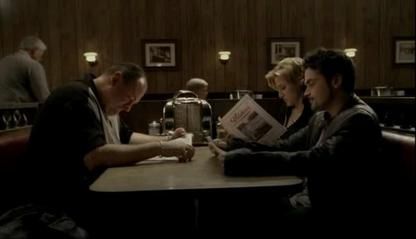
Despite all of these new options, there is something about going back to the roots of what made conversations like this possible. When surveying a local sample of Gen Z viewers of The Sopranos, common answers were “my parents swore it was the best show” and “nostalgia purposes.” Gen Z, despite always pushing for the next best thing, adores the feeling of going back in time. From fashion, to movies, to TV shows, revisiting the past allows time to stop for a second in a bustling, bombarded world. And I think that’s why The Sopranos got it’s comeback over 20 years after the pilot aired in 1999.
In a moment where everyone’s mental was struggling,amidst a pandemic, a stressful election, and everything in between, Gen Z wanted to feel seen and heard, while also escaping the reality they were in currently. And that is the beauty of a work like The Sopranos, it’s ability to be relatable to anyone at any time. As Tony battles his own inner demons, he is dealing with other people who also have their own inner demons. That’s really how the world works: all of us trying to deal with ourselves as we deal with everyone else,trying to get as close to symbiosis as possible. And while we try to achieve that, all we strive for is to be understood, just like Tony.
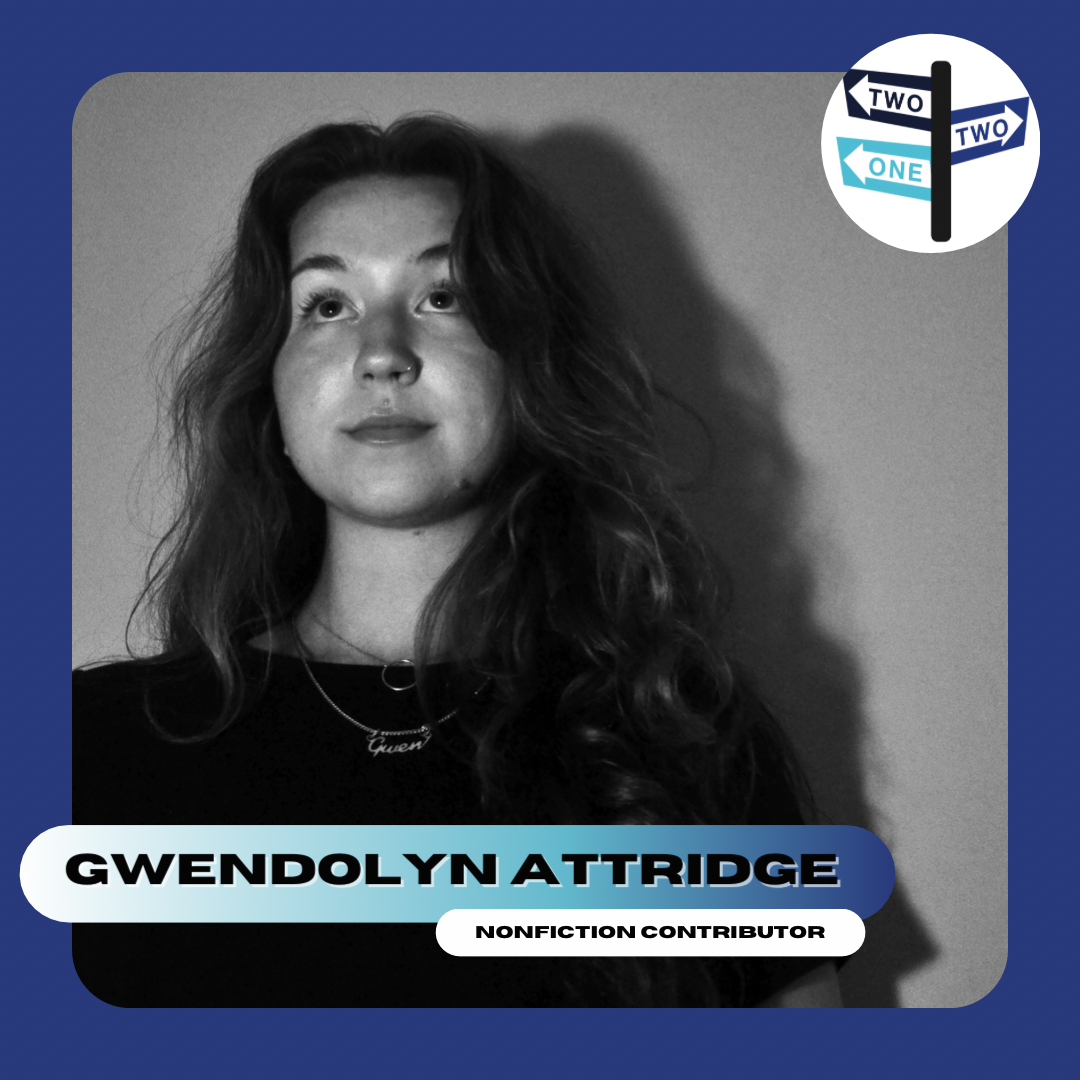
First semester senior pursuing a Digital Journalism major and minors in Photography and Fashion Studies. She is passionate about creating content and is not shy to admit to her social media addiction. She hopes to combine that love of scrolling with her passion for visuals and writing to help advance brands, businesses, and publications into the digital world after graduation.
